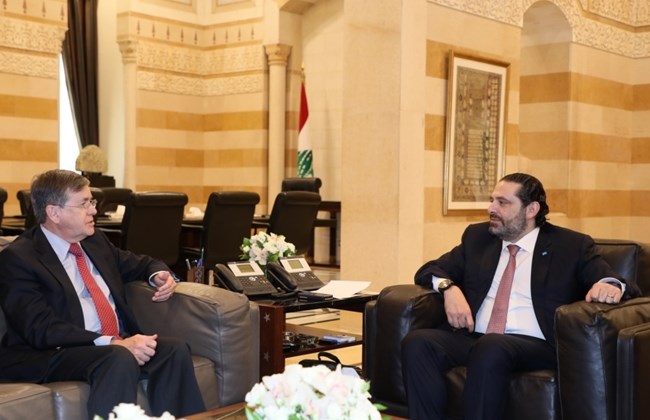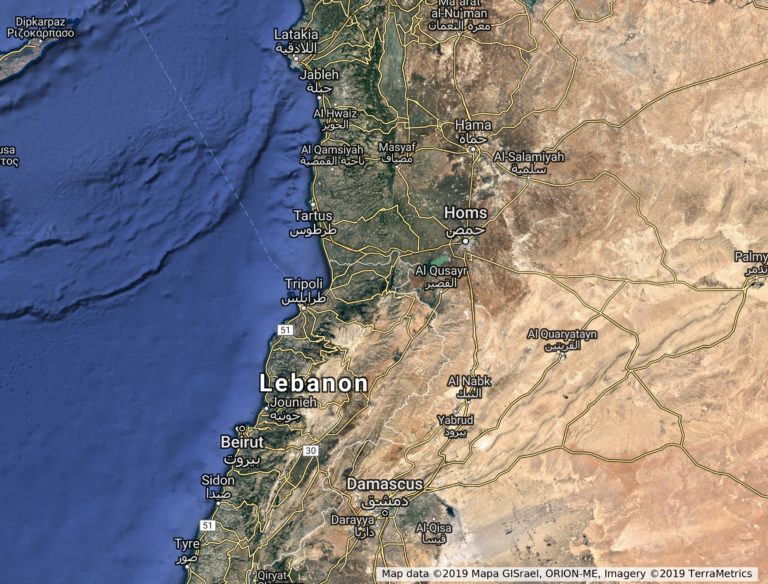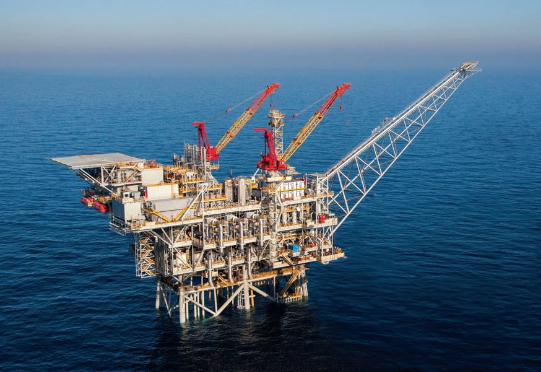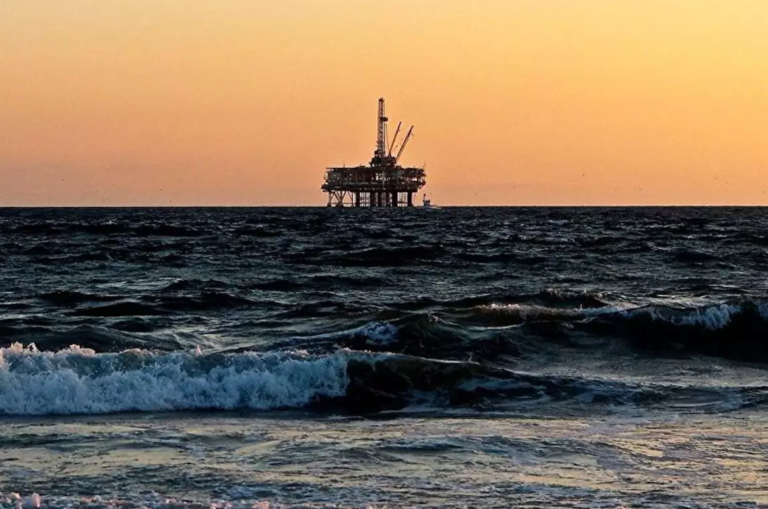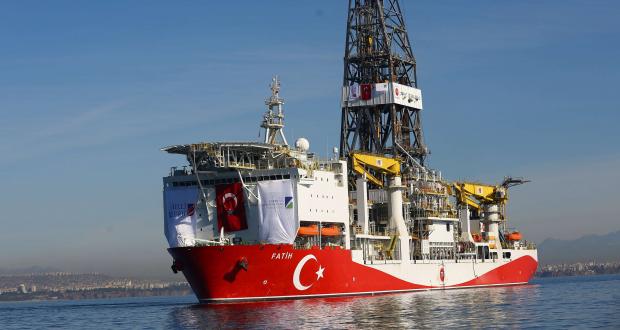Oil hopes fire up Lebanon-Syria border issue

Lebanon and Syria have set their sights on potential revenues from oil and gas revenues as boons to their struggling economies.
At the same time, Beirut is hoping to capitalize on increasing international interest in the Eastern Mediterranean due to large hydrocarbon finds, including in Cyprus and Israel. Lebanon, though well behind its western and southern neighbors, hopes to join the club soon after its first exploratory well is drilled in December.
With the issue still in its early stages, experts told The Daily Star that demarcating Lebanon’s northern border should be much simpler than delineating those with Israel, with whom Lebanon is still technically at war. Still, demarcating the northern border could have its own stumbling blocks, particularly considering political differences in Lebanon over the nature of the country’s ties to Syria.
So what is under dispute?
The northern land border between Lebanon and Syria is de facto demarcated today by the Nahr al-Kabir River. This border is important, because the point at which it meets the sea is crucial for determining the maritime border.
Issam Khalife, a history professor at the Lebanese University who wrote a book about attempts to demarcate the northern border, said there were few points of difference over this border. He said the line would be set in the middle of the river, with the final point lying where it empties into the Mediterranean.
This contrasts starkly with the southern border demarcation issue, where 13 points are disputed.
Meanwhile, about 850 square kilometers of sea is disputed between Syria and Lebanon, Roudi Baroudi, an oil and gas consultant with some 40 years’ experience, told The Daily Star.
This is nearly the same number as the roughly 860 square kilometers under dispute between Lebanon and Israel.
Khalife said that Beirut and Damascus had engaged in serious talks over demarcating the border since after both countries gained independence from France in the mid-1940s. But those talks fizzled out with the advent of the Lebanese Civil War (1975-90).
In 1976, Syria entered Lebanon as part of a peacekeeping force, and remained in the country until its 2005 ouster by the massive popular uprising that followed the assassination of former Prime Minister Rafik Hariri.
“Syria felt that it and Lebanon are one country, so why draw its borders with Lebanon?” Khalife said.
Lebanon in 2011 published a unilateral outline of its northern border, on which Syria has not formally commented.
However, maritime oil blocks that Syria published in March 2019 show a large overlap with those published by Lebanon – encroaching by some 15 kilometers at the furthest point.
Using the methods set out by the United Nations Convention on the Law of the Sea – ratified by 168 nations including Lebanon, but not Syria, which maintains observer status – Baroudi has mapped out a line that he said marked the correct maritime border between the two countries. According to this line, Lebanon has encroached on Syrian territory by about 1.7 kilometers, while Syria, according to its oil blocks, sees its border as lying 15 kilometers inside Lebanon’s territory.
“Both sides have overestimated, so this has to be rectified between two friendly states,” Baroudi said.
Defense Minister Elias Bou Saab and Foreign Minister Gebran Bassil could not be reached for comment despite multiple attempts.
Two Foreign Ministry sources declined to comment on whether Lebanon had received a formal request from Syria to demarcate the northern border, as was reported this week in pan-Arab newspaper Asharq al-Awsat.
After the issue lay dormant for years, Bou Saab last week said he had knowledge that Syria was looking to demarcate the northern land and maritime border.
He later added that Russia could play a “positive” role in the dispute due to its energy interests both in Syria and in Lebanon.
Russia has been a major supporter of Syrian President Bashar Assad in the 8-year-old conflict, and Syria’s Oil Minister Ali Ghanem last month said that a Russian company would be tasked with maritime oil and gas exploration.
The Daily Star could not reach the Syrian Embassy for comment despite multiple attempts.
Meanwhile in Lebanon, Russian company Novatek is part of a consortium that is set to drill the country’s first exploratory well in December. And Energy Minister Nada Boustani told AFP last week that Russian companies Novatek, Gazprom and Lukoil had expressed interest in the second exploration round launched in April that includes two blocks bordering Syria, named 1 and 2.
She said that Cabinet’s approval of those blocks “means that it knows a deal will be brokered” with Syria.
Baroudi said the massive wealth at stake would likely bring Lebanon, Syria and Israel to the negotiating table.
“All the major firms involved in this sector do not flirt with countries that have problems, especially with their maritime boundaries,” Baroudi said. “They want to have clear-cut agreements, otherwise they will not come.”
MP Yassine Jaber, the chair of Parliament’s Foreign Affairs and Expatriates Committee, agreed.
“Of course this is what’s pushing us, to be able to lure big companies,” he said.
If the statements about Syria’s intentions to demarcate the border are proven, the question becomes how Lebanon will be represented at the table.
Lebanon’s indirect negotiations with Israel were aided by a unified stance among the country’s top leaders, but talks with Syria could be hurt by internal differences.
Prime Minister Saad Hariri has ruled out any direct negotiations with Damascus on any issues until a political solution to the Syrian crisis is reached. However, both countries maintain diplomatic relations, with embassies in Damascus and Beirut respectively.
Jaber expressed belief that Russian mediation could help Lebanon sidestep the political quagmire that direct talks with Syria could present. But he said he was confident that local obstacles could be overcome even without such mediation, given that the country’s leaders had agreed to negotiate with Israel even though the two were still at war.
“We are talking with an enemy in the south, so it’s much easier to have a joint committee to look at the dispute in the north, with experts,” Jaber said, adding it was in the interest of all countries to find peaceful resolutions to their disputes. “It’s quite simple: Oil and fire do not mix.”





